It's Okay to Hate Your Post-Cancer Hair
Writer and creative Sue Williamson shares her story of hair loss during breast cancer treatment.
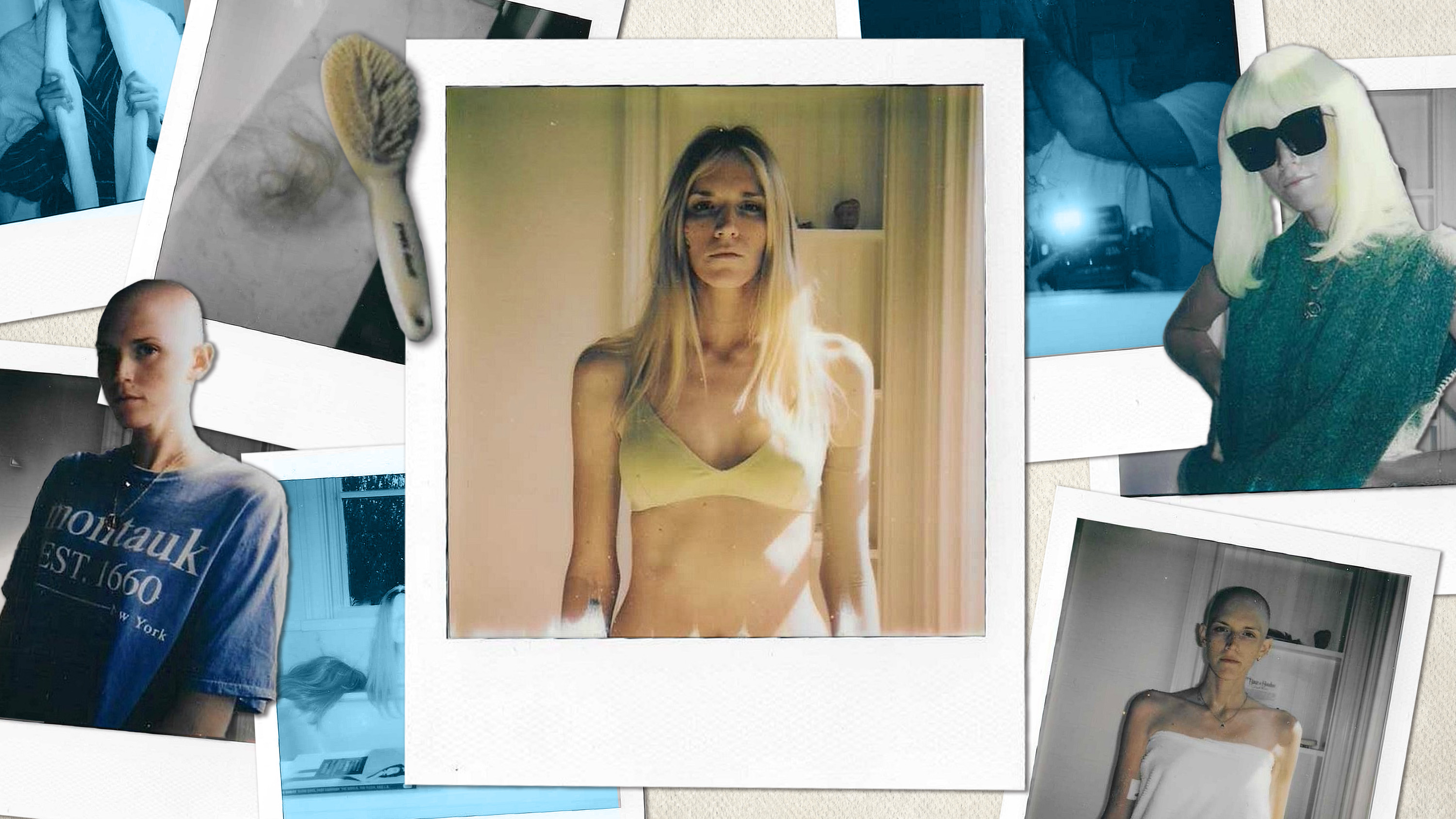
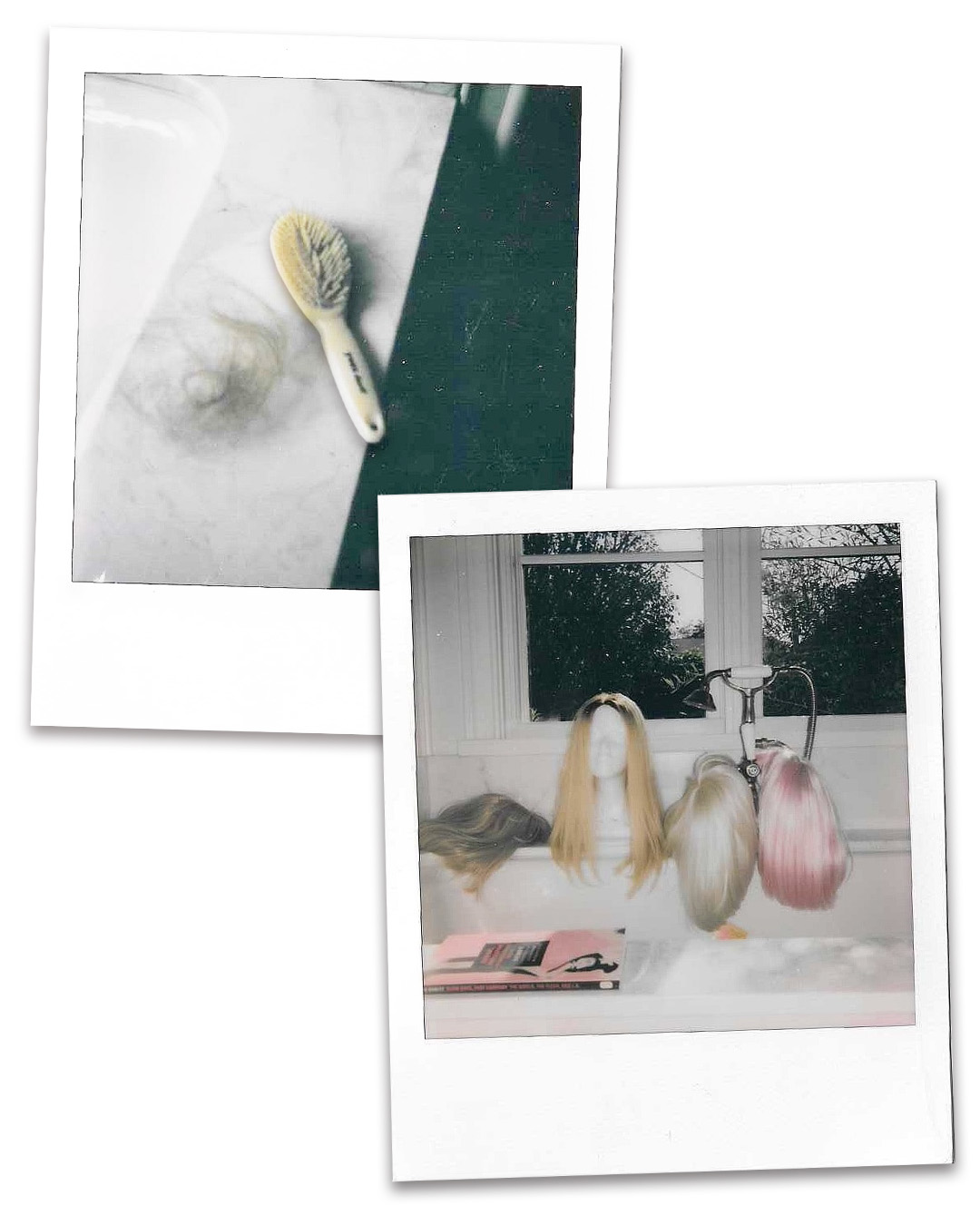
I’d love to tell you that when I lost my hair to breast cancer, I gained some virtuous traits: self assuredness perhaps, a new perspective, radical self-love. I’m sorry. I can’t. Don’t hate me. The truth is that I lost my hair to breast cancer and I spent the next three years feeling deeply self-conscious as it slowly grew back.
My hair started falling out the morning of my second chemo infusion, which is a fairly normal timeline. I was brushing my blonde waves in the mirror when I pulled my hand away and the section I was brushing came too. It was gentle and painless; dreamlike really. For a moment I was surprised, but of course I knew it was coming.
Just a few months before, in December 2020, I discovered a marble-sized lump in my left breast during a regular self-check, the cherry on top of a truly chaotic year. I was 30 years old—a full decade younger than the CDC recommends women get their first mammogram—and had neither of the BRCA genes. (At the time, my youthful diagnosis was a shock to my family and doctors, but the rising breast cancer incidence among people under 40 suggests I’m just the beginning of a troubling trend.) Immediately, I leapt into action and begged for appointments at the best hospital I could find in Los Angeles. After biopsies, a bilateral mastectomy, and a rushed attempt at egg retrieval, I began the chemo regimen I hoped would treat my cancer. Oscillating between shock and survival mode, I bought a wig on my way home from the hospital and waited for the side effects to kick in.
That night, I stood at the bathroom mirror as my boyfriend shaved my head. It had taken years to grow my hair long and just 20 seconds to shave it all away. He offered to drag it out, take things slowly, but I told him not to bother. “Just do it,” I said. There were no tears. Actually we laughed a little. We had a grand plan to superglue my shavings to the inside of my Yankees cap, a kind of makeshift wig for casual days. As my hair fell away, it became clear that neither of us had experience in wig making and that this was a terrible idea. Afterwards, I looked at my strands in the sink and my patchy buzz cut in the mirror and thought, here we go.
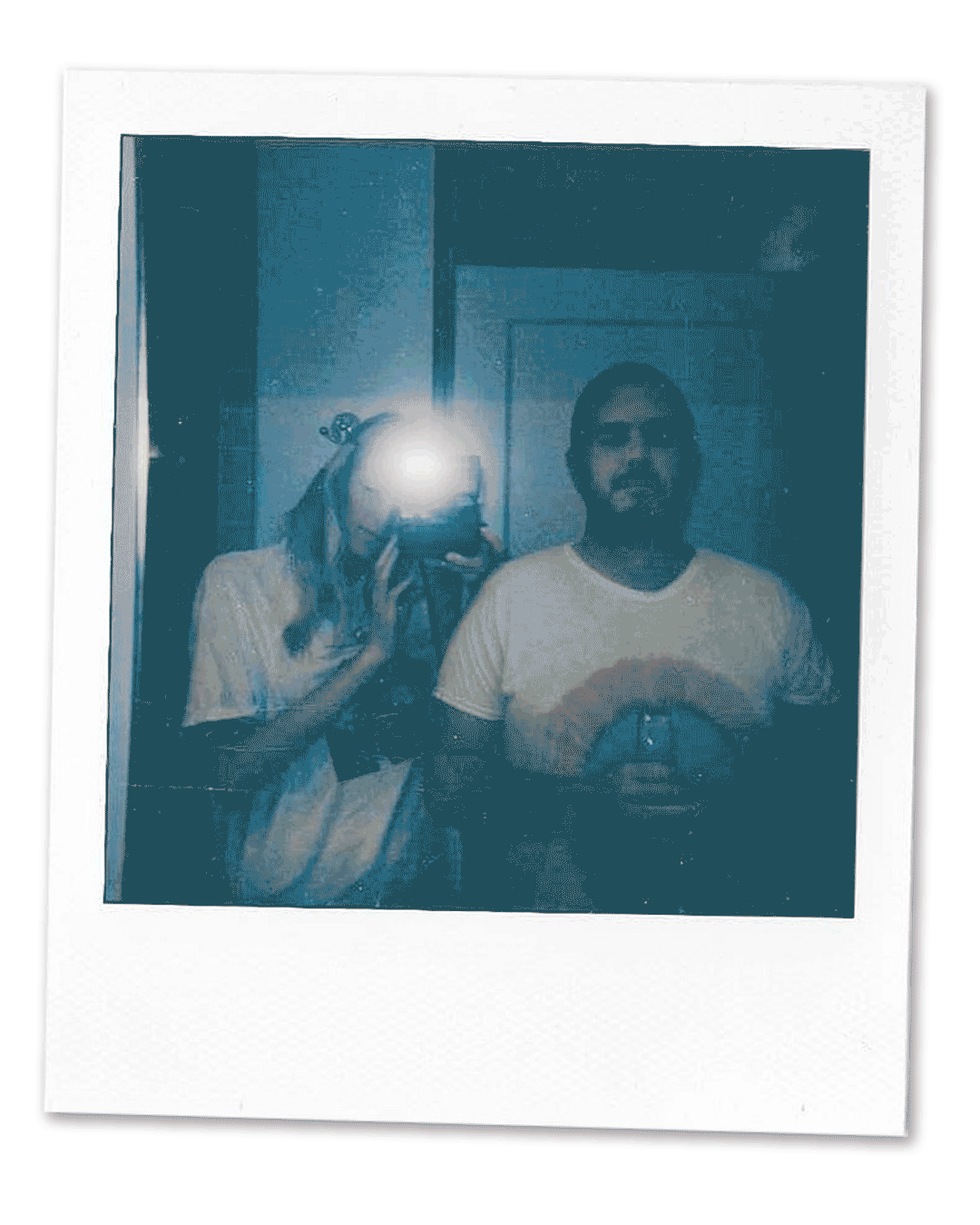
Shaving my head during treatment.
I had always loved my hair. It was long and soft and smelled like coconut conditioner from the health food store. Strangers stopped to compliment me on the street. It was my favorite accessory. But I knew that losing it was part of the price to save my life, so I paid it through gritted teeth.
Bald and vulnerable, I dove into this unusual new world. There were hospital floor plans to memorize and medical terms to comprehend—port-a-caths, pleural effusion, PIK3CA mutations. Not recognizing myself in the mirror only added to the surrealism. Soon, my eyebrows, eyelashes, and body hair fell out. I wore a wig for work, but ripped it off the second I could. My scalp hurt and my skin itched from the inside out; wigs only made it worse. Eventually, I reached my threshold for optional discomfort and ditched them altogether. “Oh, you really don’t feel good,” my coworker said the first day I showed up bald.
Abandoning wigs reduced my discomfort but made leaving the house hard. Everywhere I went, my bald head labeled me a sick person, a bat signal for strangers looking to offload their unsolicited advice, grief, and fear. “Excuse me, do you have...cancer?” a woman asked me at a coffee shop one day. “My cousin had that kind, and she died.” She shrugged as if to say “Good luck with that!” and ordered her latte. I went home without my coffee and cried. I missed my hair. I missed my privacy even more.
Cancer made irreversible changes to my body’s appearance, range of motion, and fertility; my bald head symbolized it all.
People offered me chemo conspiracy theories at the grocery store, suggested hallucinogenic mushrooms as I shopped for art supplies, and averted their eyes as I passed them awaiting their mammograms at the Breast Center. I felt guilty for being a trigger. Just a few months before I had been one of them; now I was their worst fears realized.
Friends, family, and even strangers love to tell cancer patients, “It’s just hair!” as if hair is the only thing we’ve lost. As if there isn’t a $100 billion industry devoted to hair care and record numbers of people aren’t traveling abroad for hair loss surgery. Hair matters to everyone, and being diagnosed with cancer isn’t a magical switch that convinces you that it isn’t important after all. People who say “It’s just hair!” seem to believe cancer patients no longer deserve vanity and frivolity. What they miss by talking and not listening is that cancer patients lose a lot, and hair is just one of the more tangible things. It was there, and now it’s not, and when you ask me what’s wrong, I can point to it and say, “This.”
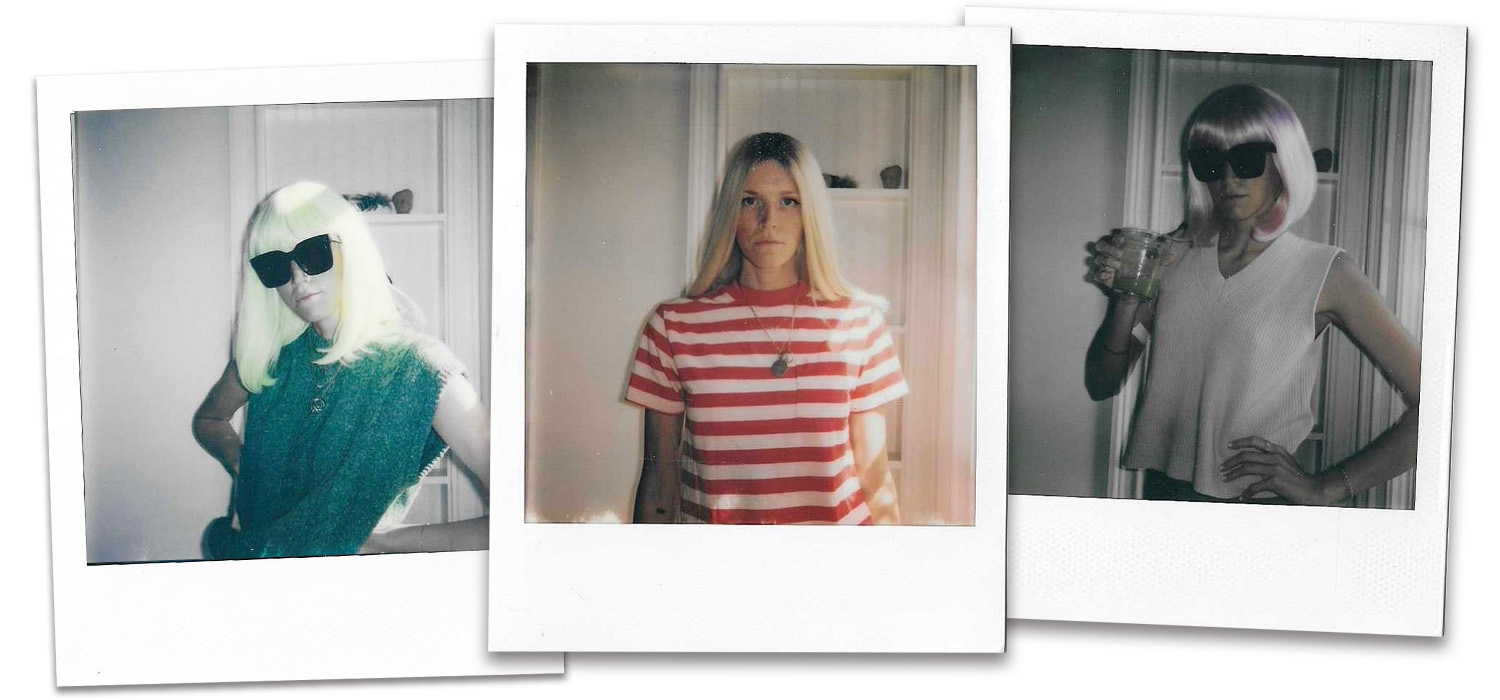
My brief dalliance with wigs.
When I looked in the mirror, I saw the disease’s toll. Cancer made irreversible changes to my body’s appearance, range of motion, and fertility; my bald head symbolized it all. I knew my friends meant well, but it minimized my feelings and made me feel judged. If I’m being honest, I judged myself, too. I’d catch myself wincing at my reflection and silently scold myself. I should be able to love myself as I am, I’d think. I should feel beautiful! Every movie I watched seemed to have a cancer moment, wherein the patient discovers how beautiful they are even once they’d shaved their head. They’d lose their hair and gain self-love—an inspiration to us all!
But the best card I received during treatment came from my friend Erin. “I don’t know if this is appropriate,” she wrote. “But your hair was really beautiful, and I imagine that was hard for you to lose.” I hadn’t cried in months, but I broke down as I read her words. She had given me a gift no one else had: validation in mourning my hair.
Between work, treatment, and life, I tried to practice self love. I did guided meditations, breath work, and positive self-talk. I made friends with other patients and found comfort in not being alone. Most of us hated losing our hair and couldn’t wait until it came back. We told each other we were beautiful, but that wasn’t what it was really about—the real pain was that we’d spent our lives building our identities and now they were nowhere to be found.
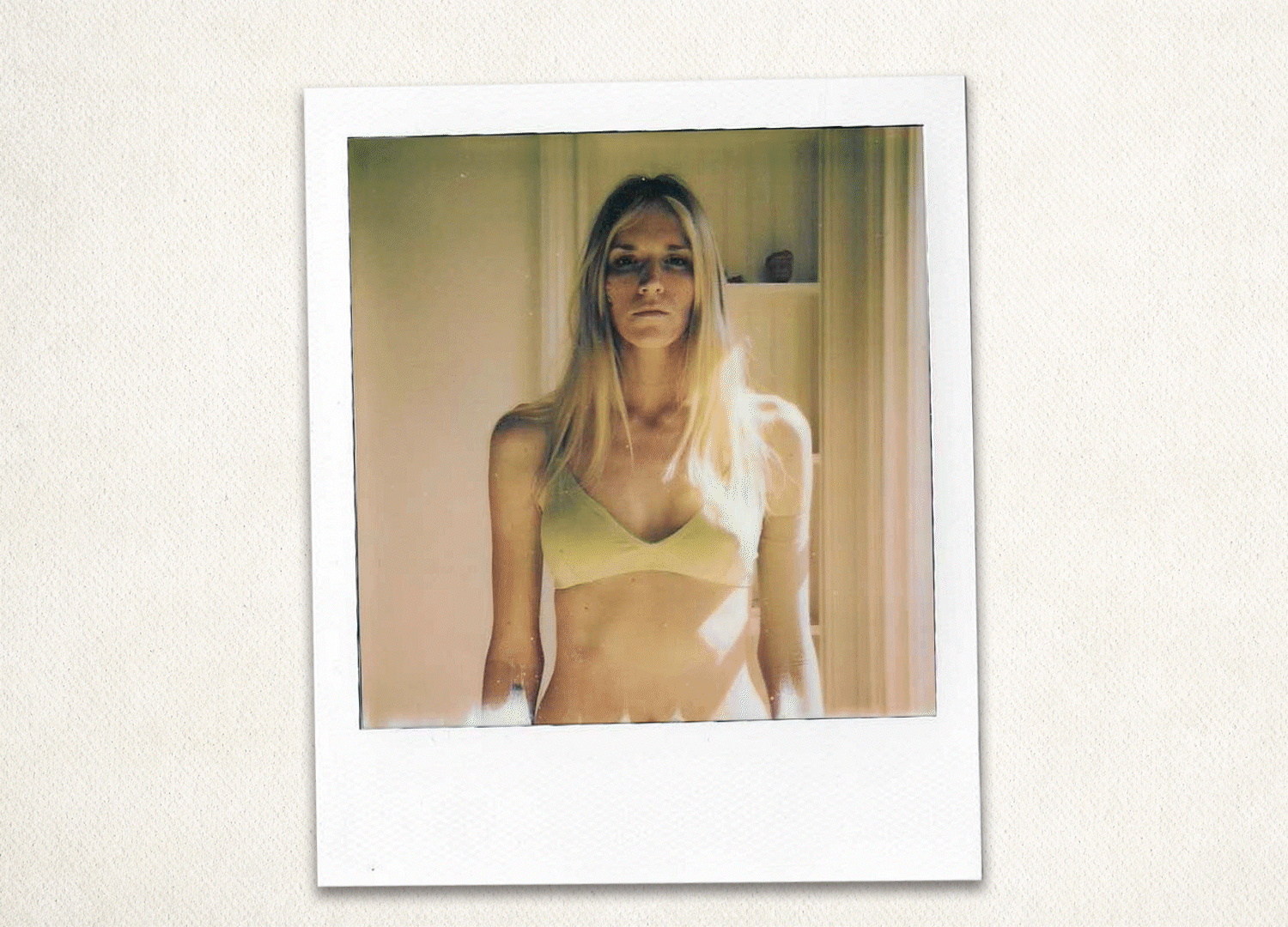
My hair, through loss and regrowth during chemotherapy.
My hair started growing back halfway through radiation and I carefully monitored its growth. Slowly it morphed from peach fuzz to a pixie cut to a mullet the color and texture of lambswool—darker, curlier, and more coarse than my original strands—which grew at a snail’s pace over the next few years. I’d straighten the curls, spray them with lemon water to lighten the color and match my previous strands, and gel it all into place. (What place? I never knew. As soon as I mastered one length, my hair would grow an inch and suddenly I was in the dark again, starting brand new.) At each phase, I tried to love it, but I just couldn’t summon the feeling.
I’d love to say I stopped grieving my hair, that I found it vain and immature—but I never did. Like everything else in my cancer treatment, I army-crawled through it because I had to, not because I wanted to. With each inch that grew I crept closer to the person I recognize in the mirror, finally free from the disease that threatened to end it all.